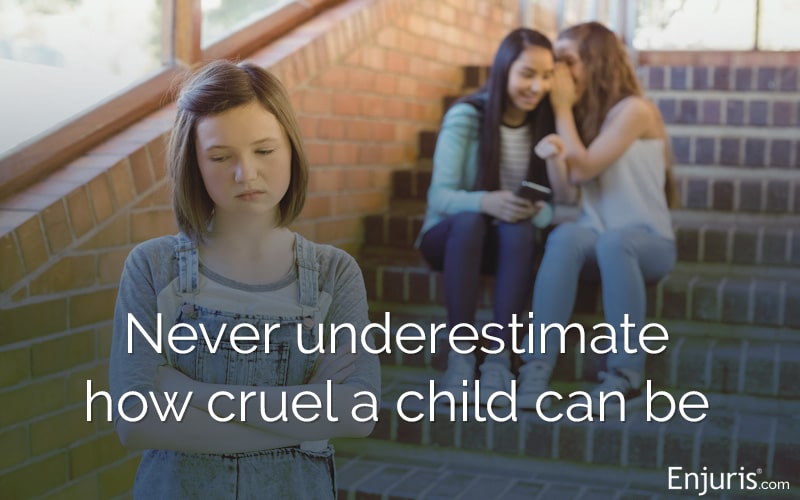
- Call or text 988
- Chat at 988lifeline.org
988 is confidential, free, and available 24/7/365.
Amazon was found not liable for the deaths of two young men whose families filed a wrongful death lawsuit, alleging that the multinational technology company sold so-called “suicide kits,” which the young men later used to take their own lives.
What are suicide kits?
So-called suicide kits are comprised of the following:
- Sodium nitrite. Sodium nitrite is an inorganic compound that can cause headaches, nausea, vomiting, diarrhea, and abdominal pain. If taken in large doses, sodium nitrite can cause death.
- Cimetidine. Cimetidine (sold under the brand name “Tagamet”) is a drug used to treat acid reflux and other stomach issues. Cimetidine can be used to prevent vomiting that may occur when sodium nitrite is ingested.
- Personal-use scale. A personal-use scale can be used to measure the amount of sodium nitrite necessary for the dose to be lethal.
- Peaceful Pill Handbook. The Peaceful Pill Handbook is a book that contains a chapter with clear instructions on how to administer sodium nitrite and cimetidine together to cause death.
At the time of the lawsuit, all of the items above could be purchased from Amazon (through a third-party seller in some cases). What’s more, the lawsuit alleged that Amazon “bundled” or “recommended” purchasing the above items together.
More about sodium nitrite
Sodium nitrite was developed in the 1960s. It is a food additive responsible for the characteristic color and flavor associated with cured meats. Though a successful food additive in small doses, sodium nitrite can be lethal if ingested in large doses. The sodium nitrite sold on Amazon is 98 percent pure.
The wrongful death lawsuit against Amazon
Tyler Muhleman, 17 years old, and Mikael Scott, 27 years old, died after consuming sodium nitrite and cimetidine, which they ordered from the Amazon website.
On December 12, 2022, the families of the two young men filed a wrongful death lawsuit against Amazon.
The lawsuit alleged that Amazon sold sodium nitrate even though the largest online retailer knew it was being used by children to commit suicide. What’s more, the lawsuit alleges that regulators warned Amazon that the sodium nitrite they sold had no household use.
“They know it’s killing people,” Mikael’s mom Ruth Scott said in an interview with the New York Times. “They are fully aware. They just don’t care.”
Notably, other online retailers, including Etsy and eBay, stopped selling sodium nitrite after learning that it was frequently being used for suicide.
Can online marketplaces be held liable for selling dangerous products?
Courts have struggled to decide whether online marketplaces (like Amazon and eBay) can be held liable for selling products directly or through third parties.
In 2020, the Ohio Supreme Court ruled that Amazon could not be held liable for an Ohio teenager’s death from caffeine powder. The coroner determined that the 18-year-old died of cardiac arrhythmia from acute caffeine toxicity caused by ingesting the caffeine powder. The Court found that because Amazon never possessed control of the product, it did not meet Ohio’s definition of a “supplier” under Ohio’s product liability laws and, therefore, could not be held legally responsible.
On the other hand, a California court of appeals ruled that Amazon could be held liable for damages caused by a detective laptop battery that caught fire and caused a woman to suffer third-degree burns.
Washington court explains why Amazon is not liable
The Washington Court of Appeals ruled that Amazon is NOT liable for the suicides of Tyler Muhleman and Mikael Scott. The court concluded that Washington law does not impose a duty on sellers to protect against intentional misuse of a product for self-harm, and suicide constitutes a superseding cause that breaks the chain of proximate causation.
Here are some of the main points made by the court:
- No duty to prevent suicide: The court cited Washington precedent that there is no duty to protect others from self-inflicted harm unless the defendant caused a mental state rendering the suicide involuntary or had a special relationship giving rise to such a duty. Neither condition was met here.
- Proximate cause: The court held that suicide is considered a voluntary, willful act unless caused by an uncontrollable impulse or insanity directly attributable to the defendant’s conduct. As the purchasers intentionally sought and ingested sodium nitrite, Amazon’s actions were not deemed the proximate cause of their deaths.
- Consumer Protection Act (CPA): The CPA protects against unfair or deceptive business practices. However, to succeed under the CPA, plaintiffs must prove an injury to their business or property, separate from personal injuries or monetary loss. In this case, the plaintiffs claimed Amazon’s sale of sodium nitrite, along with recommendations for related products, was deceptive. The court ruled the claim failed because the alleged harm stemmed from personal injuries, which the CPA does not cover.
The ruling highlighted that while Amazon may owe a general duty of reasonable care, the tragic misuse of a legal product for suicide, coupled with longstanding legal principles, shielded the company from liability under Washington law.
Parents Win $9m from School District After Daughter’s Suicide
A 12-year-old was bullied relentlessly. She died by suicide. Now her parents have recovered a $9.1m settlement from her school for failing to protect her.

